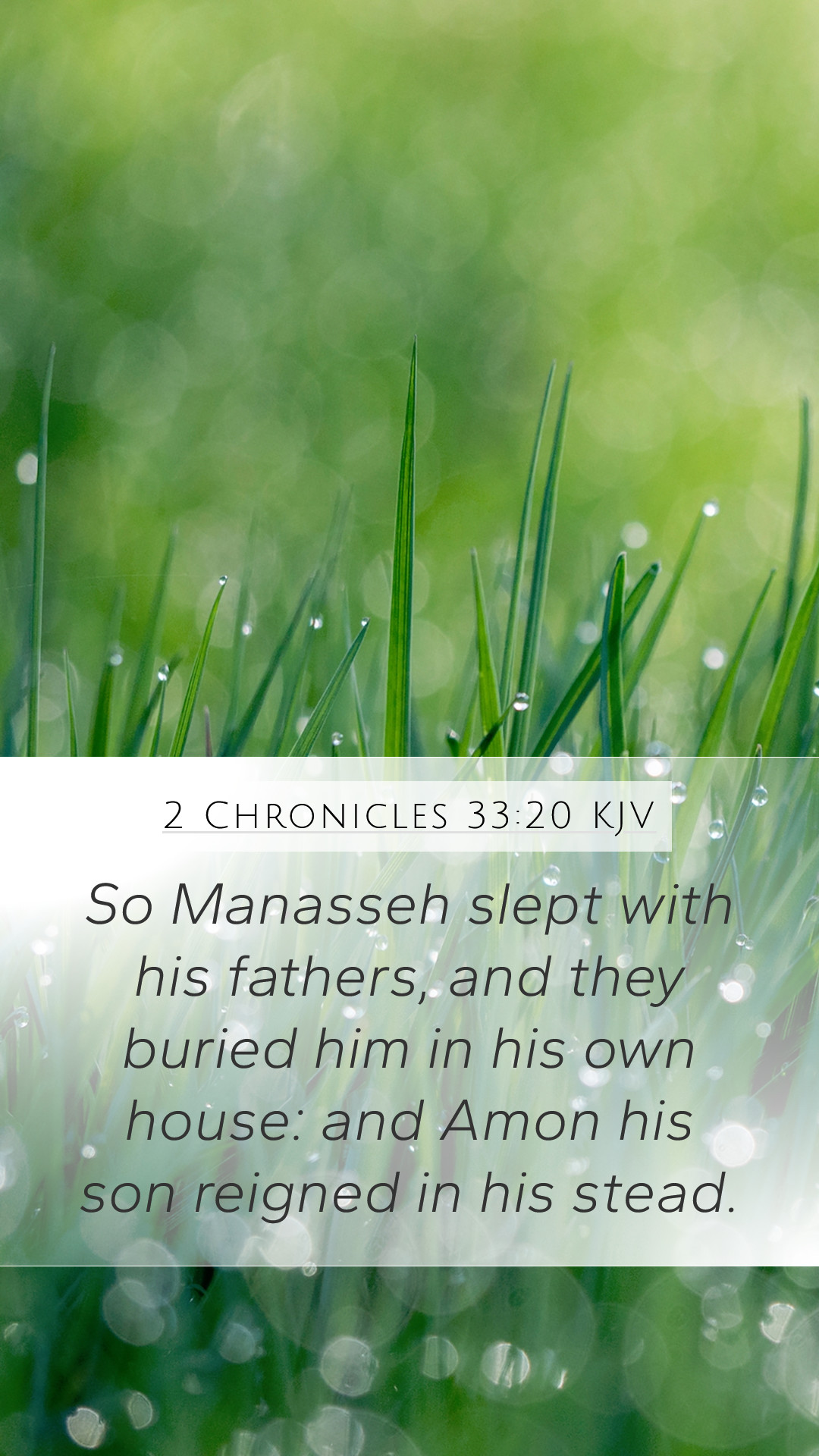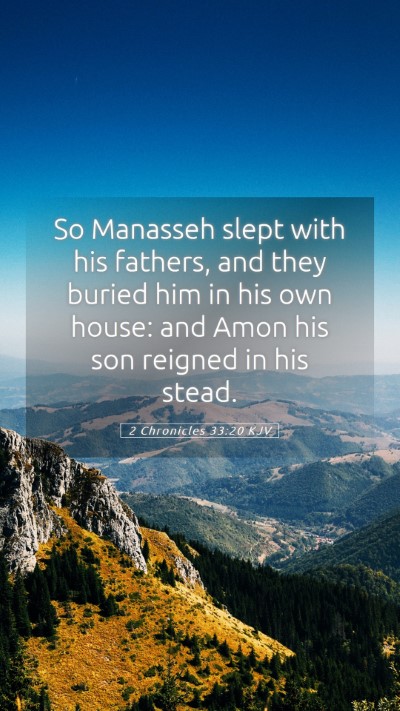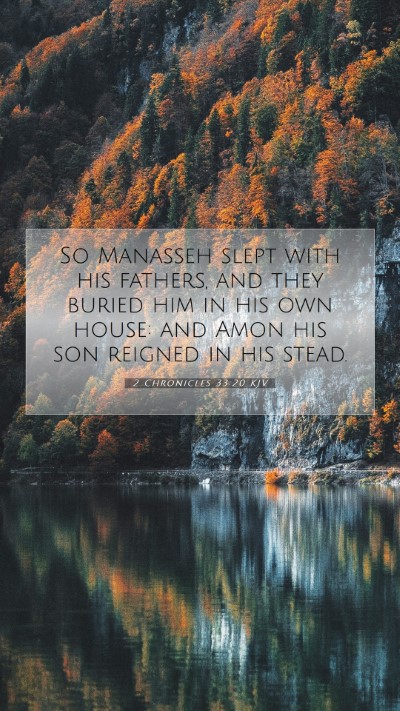Understanding 2 Chronicles 33:20
This verse marks a significant moment in the life of King Manasseh of Judah. After his death, the narrative offers profound insights into the themes of repentance, divine mercy, and the importance of a righteous legacy.
Bible Verse Meaning and Interpretations
2 Chronicles 33:20 states:
“So Manasseh slept with his fathers, and they buried him in his own house: and Amon his son reigned in his stead.”
Contextual Analysis
To truly grasp the meaning of this verse, it is essential to understand the background of King Manasseh's reign:
- King Manasseh's Reign: He was known for his idolatry and leading Judah into sin.
- Repentance: Later in life, Manasseh repented and turned back to God, a pivotal moment noted in the scriptures.
- Legacy: His death and the subsequent reign of his son Amon speak to the cycle of leadership that follows a ruler's faithfulness or unfaithfulness to God.
Commentary Insights
Matthew Henry's Commentary
According to Matthew Henry, this verse illustrates the transition of leadership and highlights Manasseh's ultimate repentance. Manasseh's return to God before his death emphasizes the theme of redemption and reminds us that no one is beyond the reach of God's mercy.
Albert Barnes' Notes
Albert Barnes notes that the burial of Manasseh in his own house signifies honor, despite his previous transgressions. His life encapsulates the idea that even the most troubled individuals can find grace and redemption by turning back to God.
Adam Clarke's Commentary
Adam Clarke points out that this verse signifies the end of Manasseh's turbulent reign, which was marked by conflict and spiritual turmoil. Clarke emphasizes the importance of personal legacy and how one's actions greatly affect future generations, as seen in the reign of Amon that followed.
Thematic Elements
- Repentance and Forgiveness: Manasseh’s story reflects the profound biblical truth that sincere repentance can lead to forgiveness and restoration.
- Legacy of Leadership: The verse invites reflection on how a leader's actions impact those who follow. Amon's reign serves as a reminder of the responsibility leaders hold.
- Divine Sovereignty: God's control over the course of history is illustrated through the rise and fall of kings, including the interplay between human sin and divine grace.
Cross References
The significance of 2 Chronicles 33:20 is further understood when cross-referenced with:
- 2 Kings 21:18-20: Parallel account of Manasseh’s reign and his eventual death.
- 2 Chronicles 33:12-13: Manasseh's repentance and God's mercy highlighted.
- Jeremiah 15:4: Mention of the judgment against Judah due to Manasseh's actions.
Implications for Bible Study
This verse and its surrounding context provide valuable insights for those engaged in Bible study groups and online Bible studies. Individuals can explore themes such as:
- Influence of personal choices on descendants.
- The importance of returning to faith after straying.
- Understanding God's patience and willingness to forgive.
Applying the Insights to Daily Life
For those asking, “What does 2 Chronicles 33:20 mean for me?” the application can be profound:
- Recognizing the opportunity for redemption in one's own life.
- Understanding the weight of one's influence over others.
- Encouragement to engage in discussions about repentance and forgiveness within Bible study settings.
Conclusion
In summary, 2 Chronicles 33:20 provides a powerful reminder of the possibility of redemption and the lasting impact of one's life choices. Through this verse, believers are encouraged to reflect on the merciful nature of God and to consider their legacy while embracing opportunities for spiritual growth and renewal.


